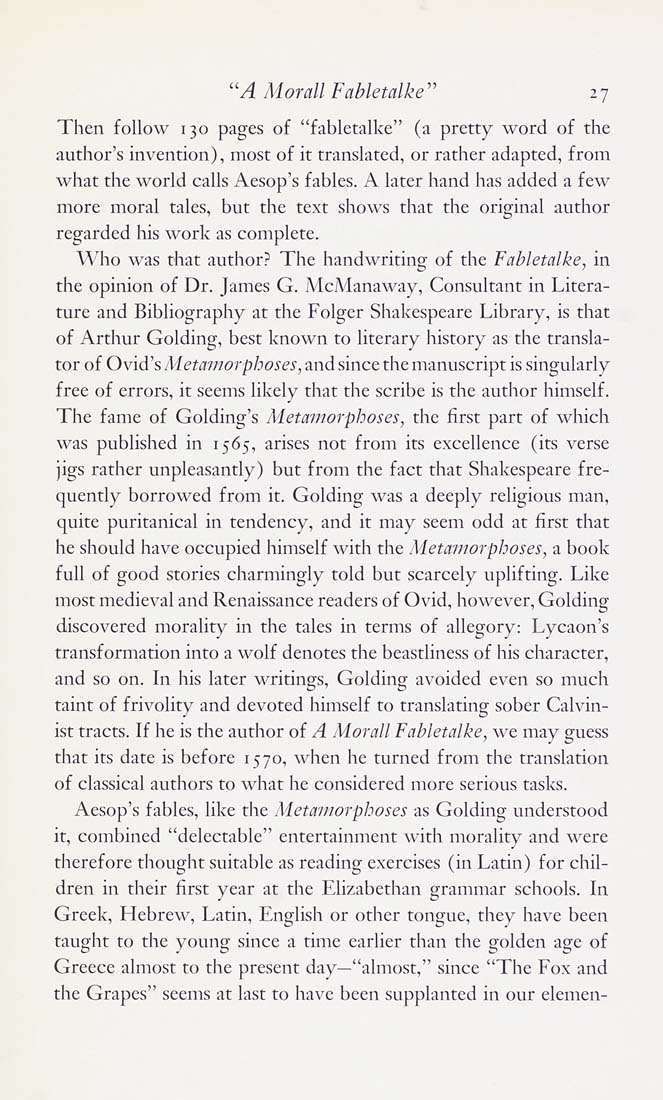Columbia Library columns (v.9(1959Nov-1960May))
(New York : Friends of the Columbia Libraries. )
|
||
|
|
|
|
| v.9,no.1(1959:Nov): Page 27 |

"A Morall Fabletalke" 27 Then follow 130 pages of "fabletalke" (a pretty word of the author's invention), most of it translated, or rather adapted, from what the world calls Aesop's fables. A later hand has added a few more moral tales, but the text shows that the original author regarded his work as complete. Who was that author? The handwriting of the Fabletalke, in the opinion of Dr. James G. McManaway, Consultant in Litera¬ ture and Bibliography at the Folger Shakespeare Library, is that of Arthur Golding, best known to literary history as the transla¬ tor of Ovid's Metmnorphoses, and since the manuscript is singularly free of errors, it seems likely that the scribe is the author himself. The fame of Golding's Metamorphoses, the first part of which was published in 1565, arises not from its excellence (its verse jigs rather unpleasantly) but from the fact that Shakespeare fre¬ quently borrowed from it. Golding was a deeply religious man, quite puritanical in tendency, and it may seem odd at first that he should have occupied himself with the Metamorphoses, a book full of good stories charmingly told but scarcely uplifting. Like most medieval and Renaissance readers of Ovid, however, Golding discovered morality in the tales in terms of allegory: Lycaon's transformation into a wolf denotes the beastliness of his character, and so on. In his later writings, Golding a\'oided even so much taint of frivolity and devoted himself to translating sober Calvin- ist tracts. If he is the author of A Morall Fabletalke, we may guess that its date is before 1570, when he turned from the translation of classical authors to what he considered more serious tasks. Aesop's fables, like the Metamorphoses as Golding understood it, combined "delectable" entertainment with morality and were therefore thought suitable as reading exercises (in Latin) for chil¬ dren in their first year at the Elizabethan grammar schools. In Greek, Hebrew, Latin, English or other tongue, they have been taught to the young since a time earlier than the golden age of Greece almost to the present day—"almost," since "The Fo.x and the Grapes" seems at last to have been supplanted in our elemen- |
| v.9,no.1(1959:Nov): Page 27 |







